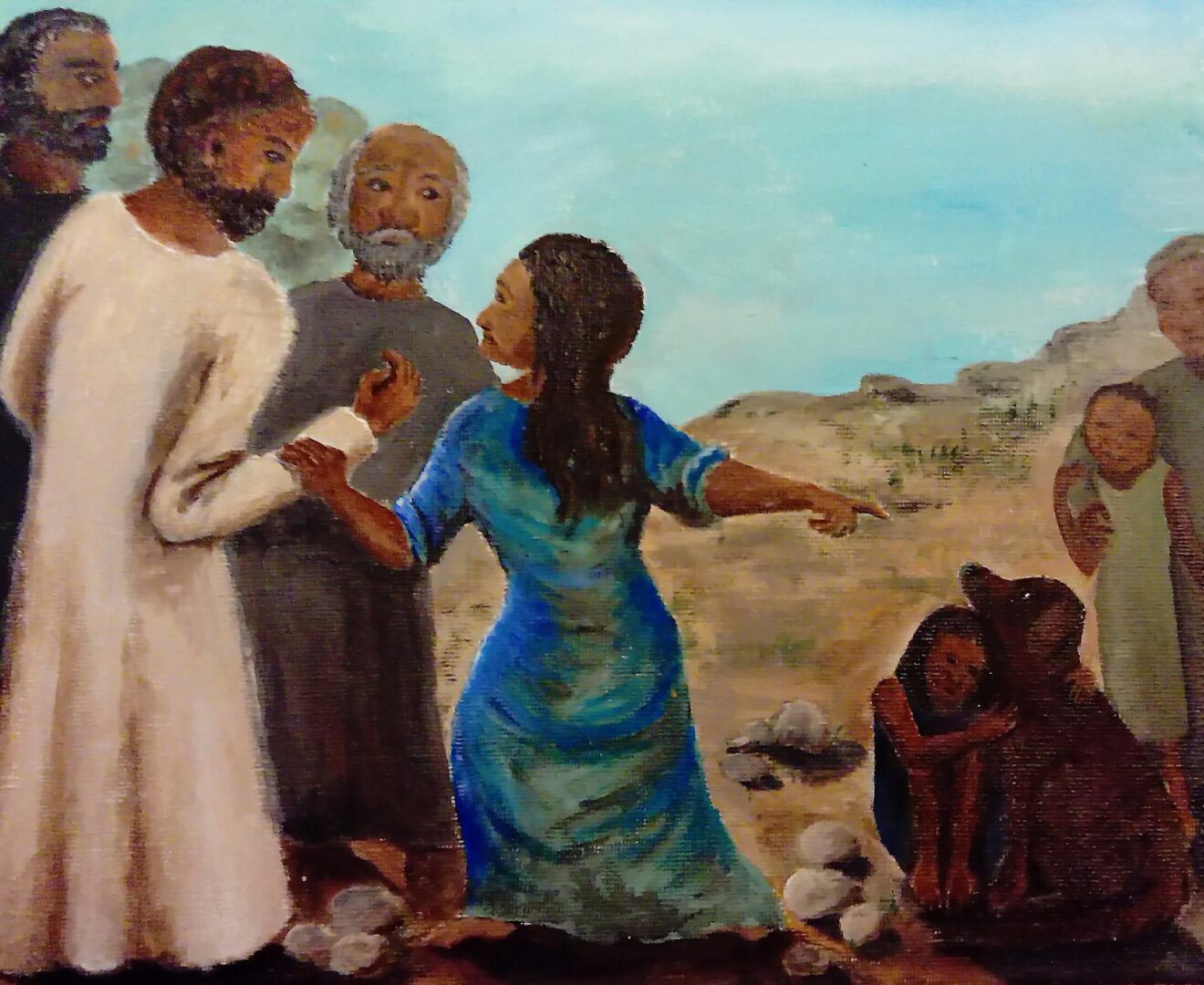It’s Not Her Job
March 29, 2023

As we near the end of Women’s History Month, I want to offer a reflection on one of the many powerful women that encountered and inspired Jesus.
Mark 7:24 From that place he went off to the district of Tyre.[a] He entered a house and wanted no one to know about it, but he could not escape notice. 25 Soon a woman whose daughter had an unclean spirit heard about him. She came and fell at his feet. 26 The woman was a Greek, a Syrophoenician by birth, and she begged him to drive the demon out of her daughter. 27 He said to her, “Let the children be fed first.[b] For it is not right to take the food of the children and throw it to the dogs.” 28 She replied and said to him, “Lord, even the dogs under the table eat the children’s scraps.” 29 Then he said to her, “For saying this, you may go. The demon has gone out of your daughter.” 30 When the woman went home, she found the child lying in bed and the demon gone.
Being up close to the reality of family homelessness in our community impacts the way I read the bible. I welcome this, because it means that God’s word is living and continuing to inform how we participate in the kin-dom* among us.
When I read this passage – here’s what lifts off the pages:
Mark 7:24-30 From that place he headed to Galilee through an indirect route and entered Syrophoenicia, a place where people had a different social location than his own. He went into a home and tried to remain anonymous, but of course he couldn’t. Soon a woman came advocating for her daughter’s wholeness. She fell at his feet begging. He said to her, “The way the system we are in is designed, you are lesser and are not permitted to access what is available to those the system has been set up to benefit.” Not having any of this, she said, “True compassion allows those who are lesser to have a chance to access what will make them whole. Even small efforts count.” Remaining present and having heard her deeply, Jesus replied, “You have just welcomed God’s kin-dom into this place. It turns unjust systems on their heads. Therefore your daughter is being made whole at this moment.” She went home to a new reality.
Even within the work of Bridge of Hope, we continually find ourselves up against systems that benefit some and disadvantage others. In fact, these systems are directly related to why many families fall into homelessness. When we partner with a family, we invite small groups to neighbor through time, love and presence. These folks tend to be more privileged. We insist that this role is mutually transformative, because God is doing work in all of us. The very first question we ask volunteers is “What is your why?” Because if they come with expectations to place on the women and families to perform in a certain way, they will be disappointed. And rightly so! Because it’s not a family’s job to help us feel good and satisfied about this work. It’s their job to move toward wholeness, just as it’s our work to move toward wholeness. The story in Mark shows that everyone is changed in the process of participating in God’s kin-dom.
When I read the story in Mark, it always bothers me that the woman has no name. She’s only identified by her otherness. Bridge of Hope is a bridge toward families as much as it is for them to move toward hope. It offers relational closeness that grants people agency. They have names, stories, personalities, hopes and dreams. This story is really about dignity. And God’s kin-dom dignifies those who are dispossessed. It’s always been that way, and so we should fully expect that it will continue to lift off the pages of the sacred texts of our everyday lives, as we expect God to be present among us.
How is God speaking to you right now? Is your heart being stirred to love a Bridge of Hope family? We need your open-hearted willingness to say Yes! Please contact us for more information about Neighboring with Bridge of Hope.
*I’ve used kin-dom in mindfulness of how God’s reign is not like kingdoms of this world that privilege some over others.
